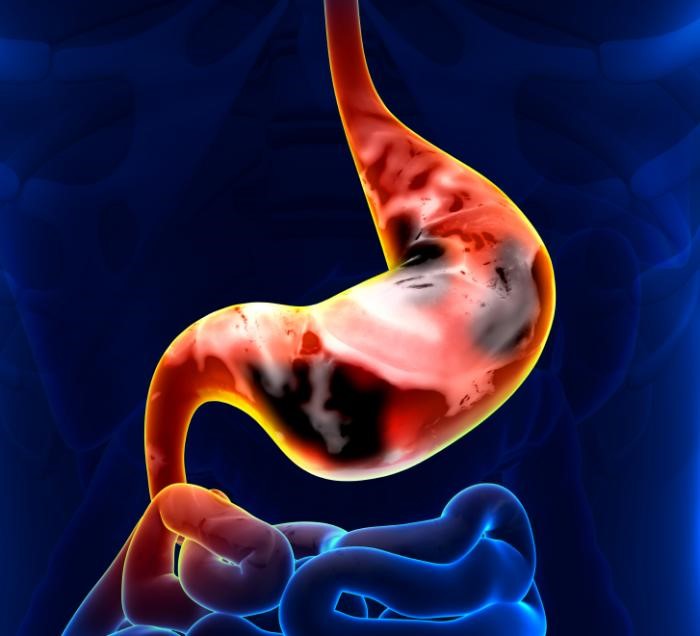Medical Care
Do bacteria cause stomach cancer?
Stomach cancer, also known as gastric cancer, is a build-up of abnormal cells that form a mass in part of the stomach.

According to the World Health Organization (WHO), 723 000 cancer-related deaths are caused by stomach cancer each year worldwide. It is the fifth most common cancer worldwide, but the third leading cause of cancer-related deaths.
The highest stomach cancer rates in 2018 were seen in South Korea, Mongolia, Japan, and China. But the incidence is increasing in South East Asia, including Malaysia and Indonesia.
Researchers have identified the bacterial strain that may contribute to the development of stomach cancer.
One risk factor for stomach cancer is infection with a type of bacteria called Helicobacter pylori, but the specifics of its impact on the development of tumours have been unclear.
Now, however, scientists have pinpointed which specific H. pylori strain may be responsible for increased stomach cancer risk.
The new researchers' findings may change how specialists screen for and treat this type of cancer.
“H. pylori is a very common infection: At least half the people in the world get it at some point, usually in childhood. We, doctors, aren't sure why it affects some people differently than others”, said Dr Yeap Chee Loong, Consultant Surgeon at the Gleneagles Kuala Lumpur.
“H. pylori can inflame the lining of your stomach. That's why you may feel stomach pain or get nauseous. If it's not treated, it can sometimes cause painful ulcers and open sores in your stomach lining that bleed.
Studies show that people who are infected with H. pylori are also up to 8 times more likely to get a certain kind of stomach, or gastric, cancer.
But this bacterium is only one possible cause of stomach cancer. Smoking, a diet low in fruits and veggies, and a history of stomach surgeries can raise your risk”, Dr. Yeap added.
- pyloriinfections don't always cause symptoms. You may not feel sick at all. In some people, though, the infection may cause:
- Pain or burning in your gut
- Stomach pain that's worse if you haven't eaten
- No appetite
- Nausea
- Burping a lot
- Bloating or gas
- Unusual weight loss
It is advisable to see your doctor right away if you notice the following in yourself. They could be signs of an ulcer:
- Severe stomach pain that doesn't go away
- Inability to swallow
- Bloody, tar-like stool
- Vomit that's bloody or looks like dark coffee grounds
If your doctor thinks you may have an H. pylori infection, some tests can tell you for sure:
- Endoscopy: The best way to test for H. pylori infection is to check your stomach lining. Your doctor will give you medicine to relax you. Then she'll send a long, thin tube with a camera on the end down your throat and into your stomach. She'll look for signs of infection and take a small sample of tissue from the lining. The sample will be tested in a lab to see if there's an infection.
- Blood tests: A simple blood test can show signs of H. pylori. But that doesn't mean the infection is active and causing problems or symptoms.
- Urea breath test: Your doctor can test your breath if that is a sign of H. pylori.
If you’re worried that you might have an H. pylori infection, do speak to your doctor. It is not difficult to treat the Helicobacter pylori infection once identified. A course of antibiotics will be given to you for at least 2 weeks.
About a month after you finish your antibiotics, your doctor can test for H. pylori to make sure it's gone. If there are still signs of the infection, you may need more antibiotics.
“By successfully eradicating the infection, it can minimize the risk of stomach cancer as much as possible”, stressed Dr Yeap.
Related Articles
Medical Care
Abdominal Gas, Bloating and Your Diet
Gutcare Digestive Liver Endoscopy Associates.
Read moreMedical Care
5 strategies to cope with cancer by CanHOPE
Parkway Cancer Centre’s non-for-profit cancer counselling and support service shares its suggestions for cancer patients
Read moreMedical Care
A new approach against severe asthma
A novel treatment for severe asthma is improving patients’ quality of life by significantly reducing asthma attacks
Read moreLatest Articles
Medical Care
Clinical Exercise Physiologist (CEP): The Emerging of Exercise is Medicine
How Exercising can be a Medicine
Read moreMedical Care
Reversing type 2 Diabetes: Embracing Hope and Determination
Experience the remarkable journey of Ash and his grandfather Atok as they conquer type 2 diabetes through unconventional methods, showcasing the power of love and determination over adversity.
Read moreMedical Care
Bladder Cancer: What You Need to Know
Empower yourself with our comprehensive guide to bladder cancer. Explore symptoms, diagnosis, treatments, and supportive resources to safeguard your health.
Read more